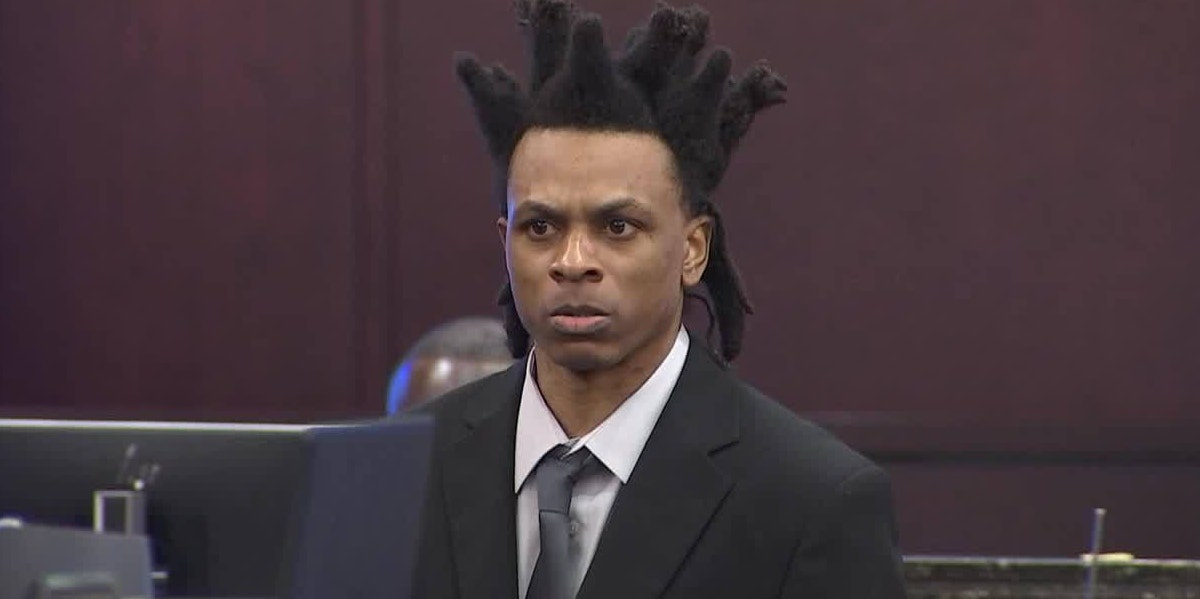Florida Man Cross-Examines Own 11-Year-Old Son While Representing Himself At Trial For Killing His Girlfriend And Daughter
The boy barely survived the alleged attack.
 WFLA / YouTube
WFLA / YouTube A murder suspect accused of murdering his girlfriend, daughter, and attempting to murder his son, cross-examined his 11-year-old victim in a disturbing courtroom scene.
Ronnie Oneal III is acting as his own lawyer, representing himself while interrogating his son who is testifying against him.
Oneal is charged with two counts of first-degree murder and one count of attempted murder in connection to the 2018 incident just south of Tampa, Florida.
He is pleading not guilty to all charges.
Ronnie Oneal III is accused of murdering his girlfriend and daughter.
Prosecutors say Oneal shot his girlfriend, Kenyatta Barron, before beating her to death with the shotgun.
Oneal then allegedly used a hatchet to kill his 9-year-old daughter — who had cerebral palsy and could not speak — before violently stabbing his son with a knife.
Prosecutors allege that Oneal set fire to the house after the double-murder. His son barely survived the attack and house fire, but was able to describe what had happened to investigators at the scene.
“The first words that came out of this brave boy's mouth: ‘My daddy killed my mommy,’” Assistant State Attorney Scott Harmon told jurors.
Oneal's son testified against him in the murder of his mother and sister.
Oneal’s son attended the court hearing via video conference from a child victim resource center and tragically faced his alleged attacker, testifying against him.
"Did I hurt you that night?” Oneal asked his son.
The boy responded, “Yes.”
“How did I hurt you?” Oneal asked.
“You stabbed me,” his son replied, adding an account of how his father used gasoline to set fire to the home.
Oneal has maintained his innocence and claimed in a dramatic opening statement that the evidence would reveal “some of the most vicious, lying, fabricating, fictitious government you ever seen.”
He argues that his son was coerced into giving an incriminating statement against his father.
“The evidence is going to show that I love my children," Oneal told jurors. “The evidence will not show you that my son witnessed me beat his mom to death, nor did he witness me shoot his mom. In fact, he didn't witness much at all.”
Survivors of family murders deal with deep trauma.
Defendants have the right to represent themselves in court, but in cross-examining their victims, these cases add extensive trauma to survivors.
Clinical psychologist and psychological trauma expert, Patricia A. O’Gorman, tells us that court cases like this are rare and potentially damaging.
“Children are usually shielded from confronting their abuser because it is known to be traumatizing. Child Protective Services should have been involved at a minimum to protect the child and support them after they gave a deposition,” she says.
O’Gorman says the death of a parent at the hands of another parent completely disrupts a child’s sense of safety and security.
"Parents are supposed to protect you, guide you, help you grow,” she says. “One parent murdering another is devastating to the child’s sense of self, crushing their sense of safety in the world. Children who go through one parent murdering another feel they have lost both parents.”
According to O’Gorman, this kind of trauma increases a child’s risk of suicide ideation and developing substance abuse later in life. Treatment is complex but highly necessary in counteracting trauma.
“A child will probably have flashbacks, reliving the event they saw again and again, and require immediate treatment for this trauma so that they do not develop PTSD.”
Alice Kelly is a writer living in Brooklyn, New York. Catch her covering all things social justice, news, and entertainment. Keep up with her Twitter for more.

